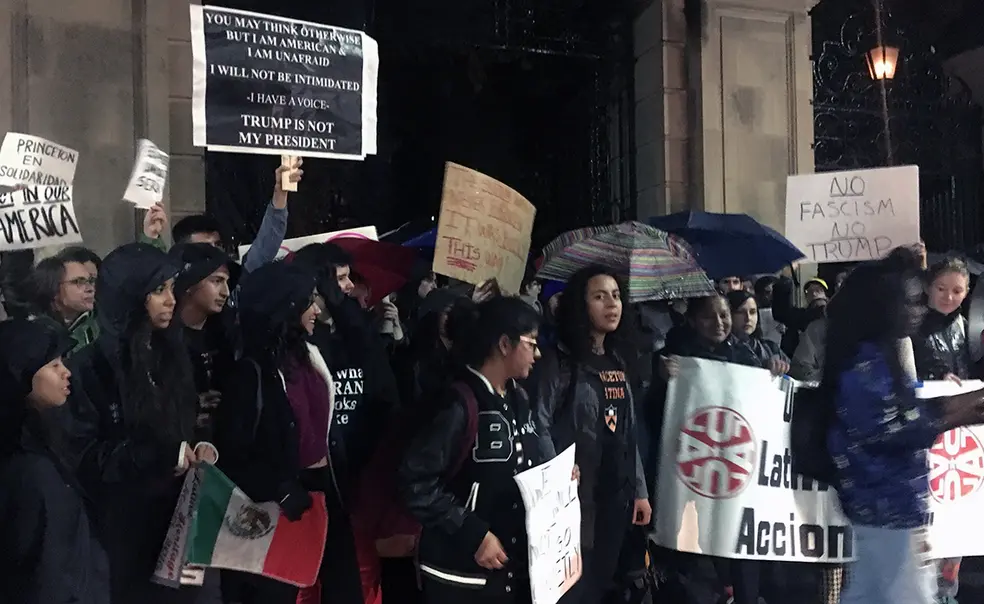Students Gather on Steps of Nassau Hall to Protest Trump
About 200 students gathered at Nassau Hall Nov. 9 to protest President-elect Donald Trump, chanting “Love trumps hate” and “Trump has got to go” and listening to speakers voice concern about his views on women, minorities, and immigrants. The group then marched through campus in the rain and gathered under an archway outside Dillon Gym.
“There’s a general feeling of sadness,” said Joshua Faires ’19, whose parents immigrated to the United States from Colombia. “I’ve never seen so many sorrowful faces on campus.”
One student held a sign that read: “Brown and Proud.” Another held a sign that read: “Princeton Against Trump.” One sign has a single word: “Why?”
Some students said they attended the protest because it was important to speak out after an election that had personally shaken them.
A graduate student told the crowd that Trump’s election made her feel like she wouldn’t be respected professionally. “Ladies, we’re more than our bodies,” she said.
McKenna Judge ’20 said she thought she would be taken less seriously as a woman in a STEM field under a Trump presidency. “I feel threatened and I feel overwhelmed,” she said. “I think that we have to do something about it, because it’s not going to change if we’re just complacent.”
Jorge Torres, an organizer with a New Jersey immigrant-rights group, planned the protest along with leaders of student groups. “This is something that we didn’t believe was going to happen, but it happened,” Torres said. “It’s time to organize in our schools and our communities.”
As the protest was taking place, about 40 students, faculty, and others met in Murray-Dodge Hall to seek out community in a time of divisiveness and to “stand with those who are most vulnerable, oppressed, targeted, and rejected.”
Theresa Thames, associate dean of religious life, said the purpose of the gathering was not to seek solutions, but to provide an opportunity to be vulnerable and to freely express feelings of anger and confusion.
READ MORE After the Election: The Campus Responds
Attendees shared their fears for marginalized groups and called for empathy for others. One student described the uncertainty and questions about safety facing immigrant families.
“I feel horrified about the results of the election,” said Jessica Sarriot GS. “I think this [discussion] is an important space to grieve and gather enough strength to start organizing.”
The Fields Center, Women’s Center, LGBT Center, and Davis International Center also scheduled times for students, faculty, and staff to meet as a University community in the days following the election.












No responses yet